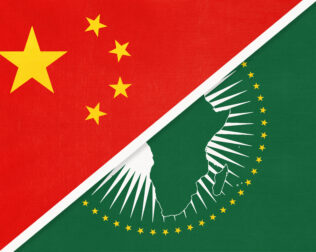By Forum Staff
One year since the Kremlin’s unprovoked, full-scale invasion, Ukraine and its allies appear to be finding success in the information space, at least across much of the transatlantic community. Civil society organizations in Ukraine and across Central and Eastern Europe have been critical to this success. In a February 21 op-ed for Just Security, International Forum for Democratic Studies senior program officer Adam Fivenson details Ukrainian civil society’s successful efforts to combat malign Russian influence campaigns in the country. He identifies three key components for their success: the importance of civil society preparation and past experience, deepening cooperation with government actors, and leveraging new technologies to respond to online disinformation more quickly and efficiently. As the Kremlin’s ambitions in the information domain are truly global, it is important for democracies to learn from Ukraine’s experience and employ these tactics to counter Moscow’s malign influence.
In a related piece for Rest of World published February 24, director of Detector Media Galyna Petrenko details how Ukrainian civil society leveraged their past experience to combat Kremlin-backed disinformation narratives. Specifically, Petrenko emphasizes that the Russian government has employed the same false narratives it used to justify its 2014 annexation of Crimea to warrant its current invasion of Ukraine. Consequently, Ukrainian civil society groups have fine-tuned their ability to counteract these narratives and have the verified information to undermine them. Petrenko also highlights the use of various technologies as central to civil society’s efforts to rebuff Kremlin information campaigns.
Read Adam Fivenson’s full article, One Year Later, Lessons from Ukraine in Fighting Disinformation, at Just Security.
Read Galyna Petrenko’s full article, How Ukraine is beating Russia’s disinformation campaigns, at Rest of World.
In addition, a Washington Post long-form editorial, titled How Russia turned America’s helping hand to Ukraine into a vast lie, highlighted conclusions of the Forum report, which you can find here.
In the context of Russia’s full-scale invasion of Ukraine, Moscow’s disinformation efforts to promote and disseminate favorable narratives about the war and its regime have become a topic of great relevance. Similarly, the information operations of other authoritarian regimes (including their tactics, goals, and consequences) are similarly under increased scrutiny. In a April 19 opinion piece for American Purpose, International Forum for Democratic Studies assistant program officer Ariane Gottlieb reviews the techniques authoritarian-backed media outlets use to promote their regime’s preferred narratives and manipulate audiences worldwide. Gottlieb rightly points out that these efforts work on multiple fronts, using new media to disseminate their message faster, employing online trolls to act as a force multiplier for authoritarian states’ defamation and intimidation, and collaborating across state lines to reinforce strategic narratives. Democracies must double down on their commitment to protect and invest in independent media and support regional pushback against these narratives and tactics to defend media freedom around the globe.
Read Ariane Gottlieb’s full op-ed, titled The Autocrat Sliding into Your DMs, in American Purpose.
Adam Fivenson is a senior program officer at the National Endowment for Democracy’s International Forum for Democratic Studies focusing on information space integrity. Follow him on Twitter: @afivenson.
Galyna Petrenko is the Director of Detector Media, one of Ukraine’s primary sources for rapid,
trustworthy information about Russia’s full-scale invasion. Follow Detector Media on Twitter: @DetectorMedia.
Ariane Gottlieb is an assistant program officer at the National Endowment for Democracy’s International Forum for Democratic Studies.
The views expressed in this, and mentioned posts represent the opinions and analysis of the author and do not necessarily reflect those of the National Endowment for Democracy or its staff. Image Credit: Brazhyk/Shutterstock.






